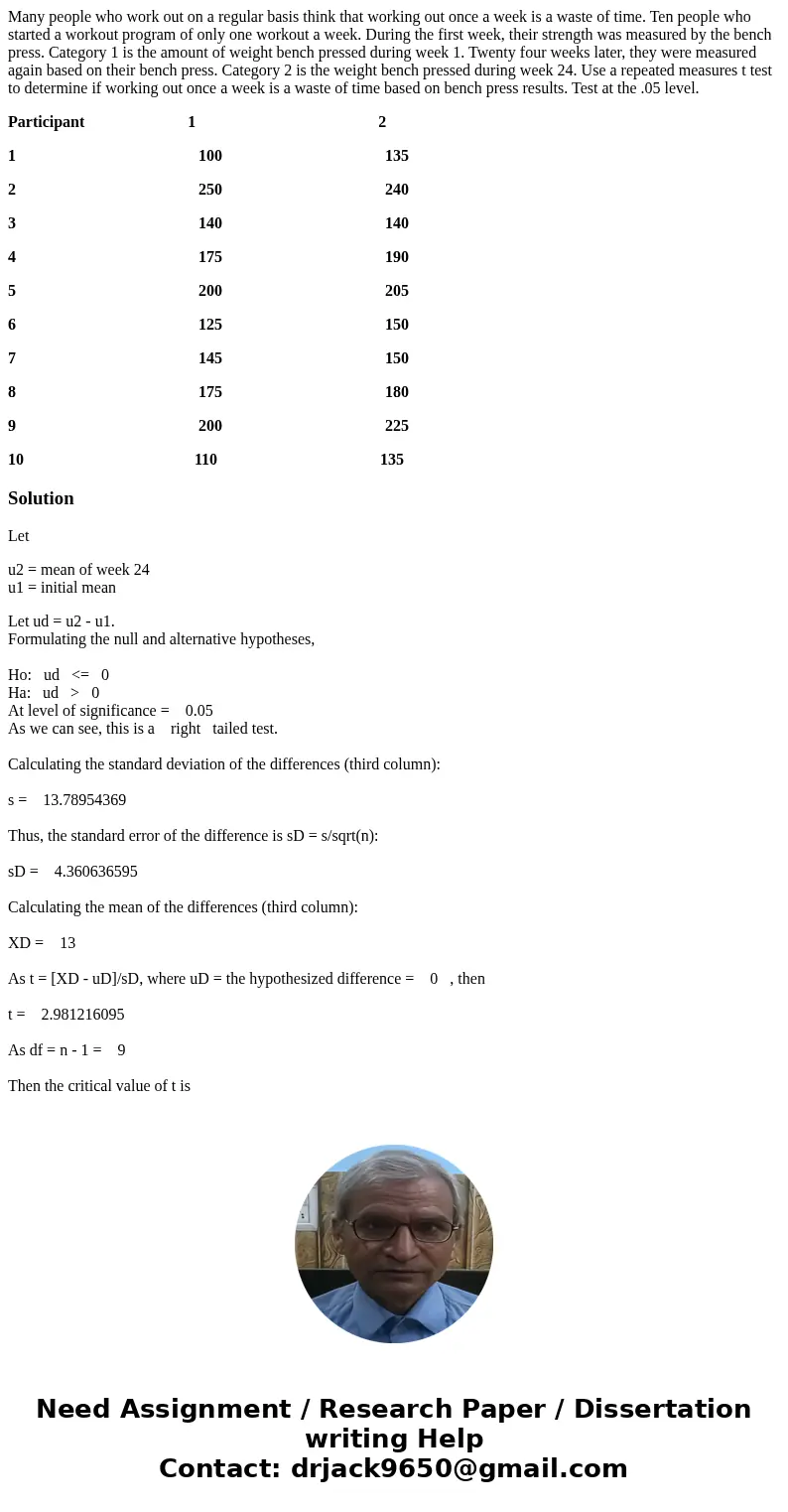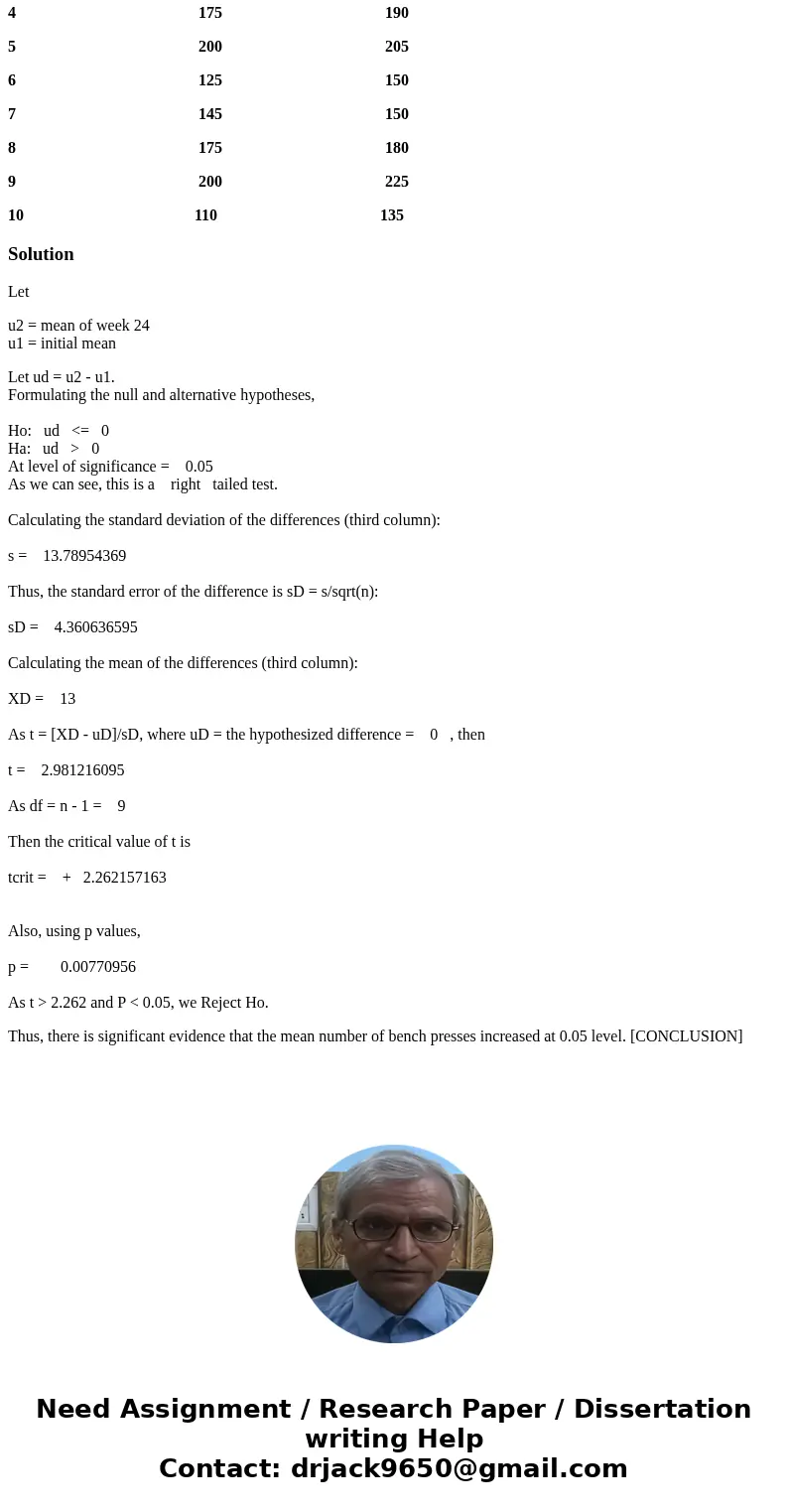Many people who work out on a regular basis think that worki
Many people who work out on a regular basis think that working out once a week is a waste of time. Ten people who started a workout program of only one workout a week. During the first week, their strength was measured by the bench press. Category 1 is the amount of weight bench pressed during week 1. Twenty four weeks later, they were measured again based on their bench press. Category 2 is the weight bench pressed during week 24. Use a repeated measures t test to determine if working out once a week is a waste of time based on bench press results. Test at the .05 level.
Participant 1 2
1 100 135
2 250 240
3 140 140
4 175 190
5 200 205
6 125 150
7 145 150
8 175 180
9 200 225
10 110 135
Solution
Let
u2 = mean of week 24
u1 = initial mean
Let ud = u2 - u1.
Formulating the null and alternative hypotheses,
Ho: ud <= 0
Ha: ud > 0
At level of significance = 0.05
As we can see, this is a right tailed test.
Calculating the standard deviation of the differences (third column):
s = 13.78954369
Thus, the standard error of the difference is sD = s/sqrt(n):
sD = 4.360636595
Calculating the mean of the differences (third column):
XD = 13
As t = [XD - uD]/sD, where uD = the hypothesized difference = 0 , then
t = 2.981216095
As df = n - 1 = 9
Then the critical value of t is
tcrit = + 2.262157163
Also, using p values,
p = 0.00770956
As t > 2.262 and P < 0.05, we Reject Ho.
Thus, there is significant evidence that the mean number of bench presses increased at 0.05 level. [CONCLUSION]


 Homework Sourse
Homework Sourse